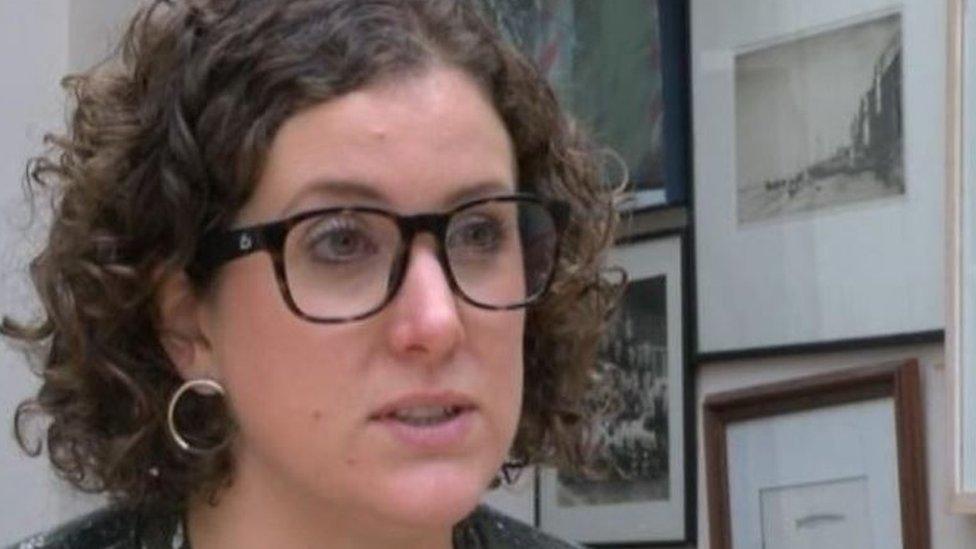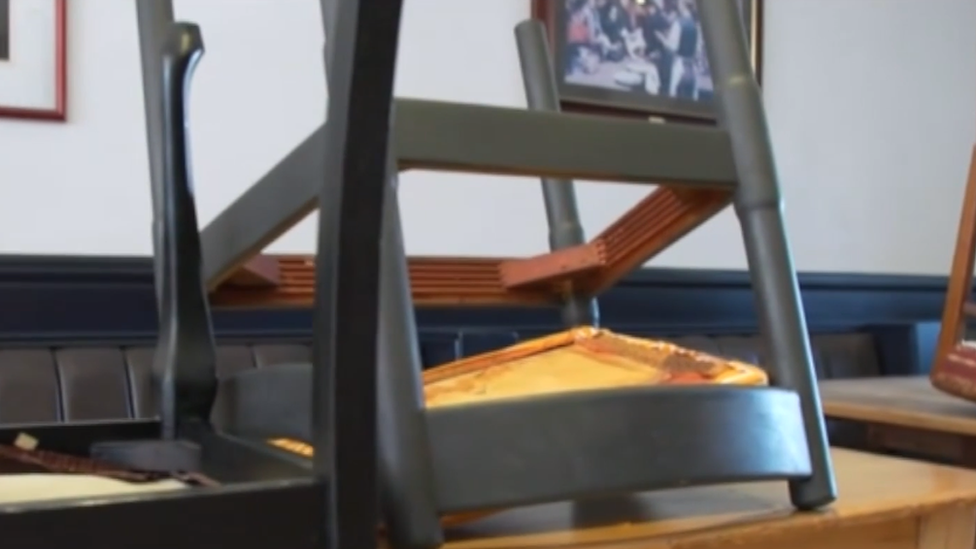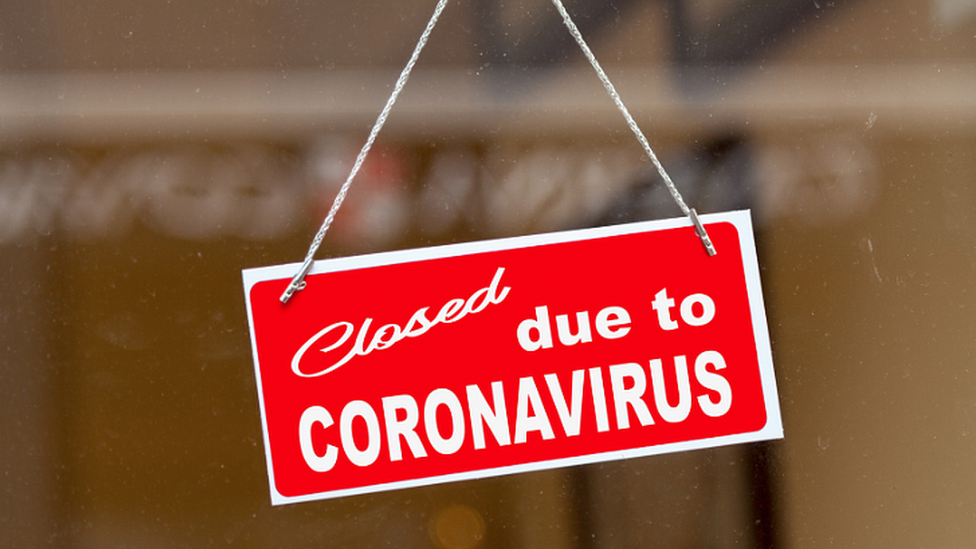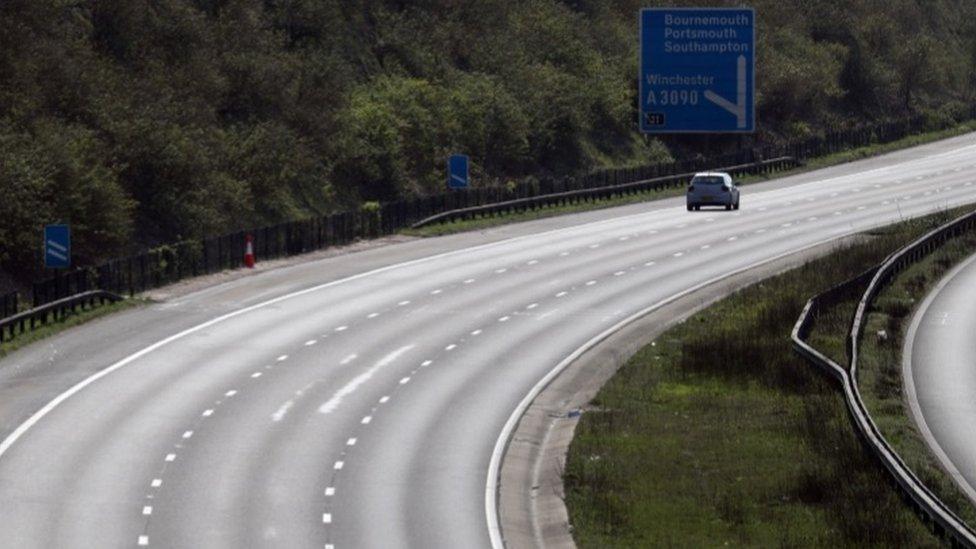Coronavirus: Businesses urged to challenge insurers 'trying it on'
- Published
- comments
Some businesses have been refused insurance claims during the coronavirus pandemic
A law firm says Welsh businesses affected by coronavirus could be able to legally challenge insurance companies that have rejected claims.
Capital Law is dealing with dozens of new cases where it says claims have been refused by insurers who are "trying it on in the first instance".
The Association of British Insurers (ABI) says individual cases are looked at on merit.
But it says most policies will not cover pandemics.
It argues that forcing insurance companies to cover risks not included in contracts would bankrupt them.
The ABI says it has already been accepted by the Financial Conduct Authority that pandemics are not covered by most insurance policies.
The organisation argues that business insurance is available for day-to-day problems like damage to premises or accidents and injuries.
'We have been pretty incensed'

Cerys Furlong says she has already lost thousands of pounds because of the lockdown
Cerys Furlong owns the Grange pub in Grangetown, Cardiff, and was forced to close down on 20 March.
She also owns the Milkwood restaurant in Pontcanna and the Lansdowne pub in Canton, both similarly affected.
She lost stock but still faces the costs of upkeep and also the costs of reopening, whenever that will be.
The business was insured - including business interruption insurance - but Ms Furlong has struggled with getting help from her insurance company so far.
She calculates she has already lost tens of thousands of pounds.
"We've got specific clauses in some of our policies which should cover us for outbreaks of infectious diseases and government closedowns but despite that we've been told we're not covered so far which is extremely disappointing and unhelpful," she said.

The Grange reopened in 2017 and won the Cardiff pub of the year award

She added: "We pay thousands of pounds a year into insurance policies every year - it's not something we claim on or would expect to claim on.
"I think the attitude has been that unless the words 'coronavirus' or 'Covid-19' are written into your policies, then you're not covered.
"Well, no-one knew what it was until it happened. We were at first reasonably confident we'd be covered but we have been pretty incensed with the response we've had so far."
The insurance company has so far refused to pay out without proof of specific incidents at the premises.
Ms Furlong said after engaging lawyers there was more dialogue but she is frustrated that others might not be in a position to take legal advice.
She said people needed to take a careful look at their policies, talk to other small businesses and see what you could learn from others.
"The difficulty is the unknown - about when we can start trading again. It's worrying as a small business - we've only been open for three years and just got into our stride.
"We're confident we'll reopen and putting ourselves in the best position to do so. But we appreciate every business, organisation and individual is affected by this."

The insurers' association says cases are looked at on merit
But Cardiff-based Capital Law believes some insurance companies are taking an "irresponsible, blanket view" and rejecting claims when they would previously have paid out.
Lawyer Guto Llewelyn said he had seen a change in attitude from insurers in cases when they would normally pay out but who are using delaying tactics or "trying it on".
"We've seen dozens of businesses based in Wales and over the border in England facing huge disruption to their businesses but facing denial from insurers who on the first opportunity are refusing cover," he said.
But he has already had cases where the insurers have changed their position after being challenged.

What is business interruption insurance?
It covers financial losses of businesses during periods when they cannot trade as usual, due to an unexpected event. But some businesses, forced to close due to Covid-19, have been told by their insurers that they are unable to claim despite the UK government indicating that insurers would pay out.
Who is being affected?
Legal firms say businesses affected include food and drink, retail, accommodation, and leisure. But the policies can vary significantly, so the advice is that business owners understand what they are really covered for.
How can cover vary?
A basic policy might only cover property damage, such as fire, and is unlikely to cover Covid-19. Actual damage to premises from the virus is hard to prove. Some business interruption policies provide broader cover and contain non-damage extensions for notifiable diseases and infectious diseases, or denial of access.
A notifiable infectious disease extension will typically apply if a disease is found on the premises, or within its vicinity. A denial of access extension will typically apply if you are required to close your business - this happened on 20 March so you may be covered depending on the wording of your insurance policy.
What do I need to do?
Contact your insurer as soon as possible and start preparing your claim, including keeping a note of key events, such as when you closed, details of your current operations and details of any people who had Covid-19 while on the premises. Ensure you are complying with any conditions on un-occupancy or vacancy.
- Published15 April 2020

- Published17 March 2020

- Published21 April 2020
